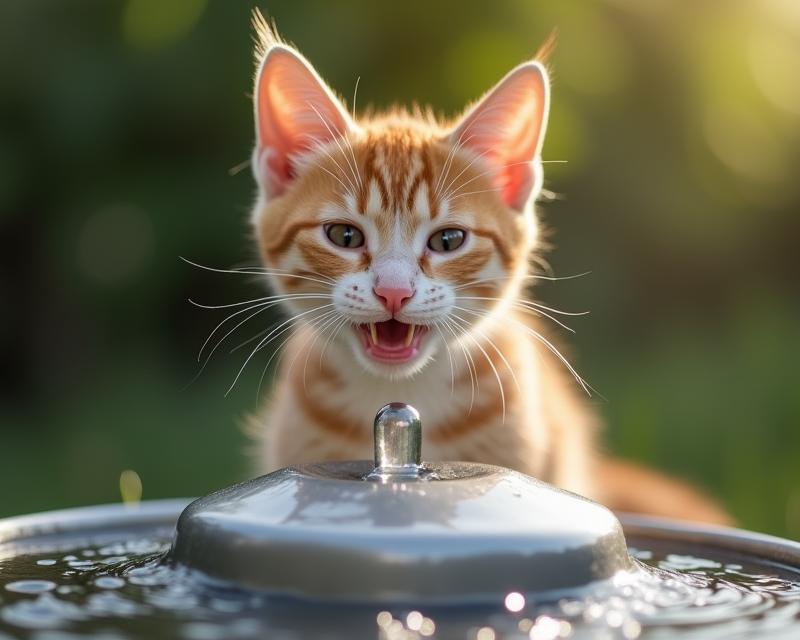Healthy Paws, Happy Bladder: Cat Diet & UTIs
Publish in Health el 30/06/2025 23:40
Diet & Urinary Tract Health in Cats: A Guide for Owners
As cat owners, we want the best for our furry friends! One of the most common health concerns in cats is urinary tract issues (UTIs), and diet plays a *huge* role in preventing them. Understanding what your cat eats can significantly impact their overall well-being, especially when it comes to their bladder health. Let's dive into how nutrition can help keep your cat comfortable and healthy.

Why is Diet So Important for Urinary Health?
Cats are obligate carnivores, meaning their bodies are designed to thrive on a diet primarily composed of animal protein. The right balance of nutrients helps maintain a healthy urinary environment. A poor diet can contribute to the formation of crystals and stones in the urinary tract, leading to painful UTIs. Certain ingredients can either promote or hinder a cat's ability to maintain a healthy urinary system. For example, diets high in certain minerals can increase the risk of crystal formation.
What to Look for in a UTI-Preventative Diet
When choosing your cat's food, look for these key features:
- High-Quality Protein: Ensure the first ingredient is a named meat source (e.g., chicken, salmon, turkey).
- Controlled Mineral Levels: Opt for foods specifically formulated to manage mineral levels like magnesium, phosphorus, and calcium. These can contribute to crystal formation if not balanced correctly.
- Appropriate Moisture Content: Dry food can be helpful, but wet food is even better! Encouraging water intake is crucial for flushing out the urinary tract. A combination of both can be ideal.
- Avoid Grain-Based Diets (potentially): While not always a problem, some cats may benefit from grain-free diets, especially if they have sensitivities. Discuss this with your vet.
Working with Your Veterinarian
It's *always* best to consult with your veterinarian about your cat's dietary needs. They can assess your cat's individual health history and recommend the most appropriate food. If your cat has a history of UTIs, your vet may prescribe a special prescription diet designed to manage urinary health. Regular vet checkups are essential for early detection and prevention. Don't hesitate to discuss any concerns you have about your cat's diet or urinary health with your vet. A little proactive care can go a long way in ensuring your cat enjoys a long and healthy life!





